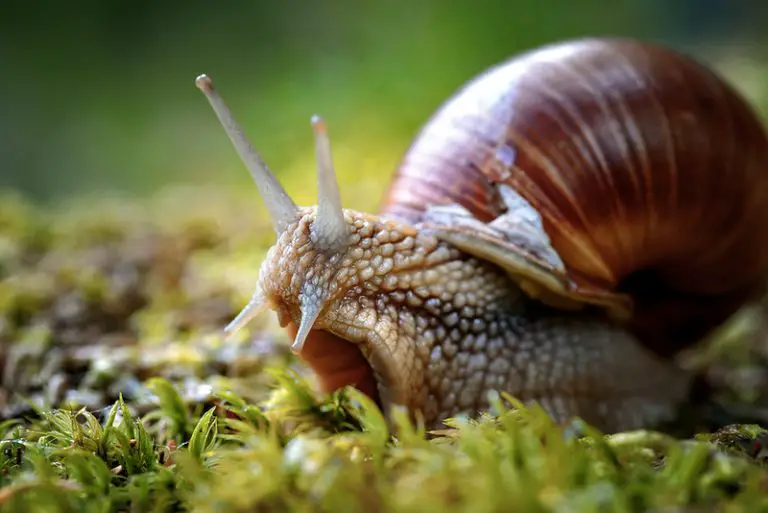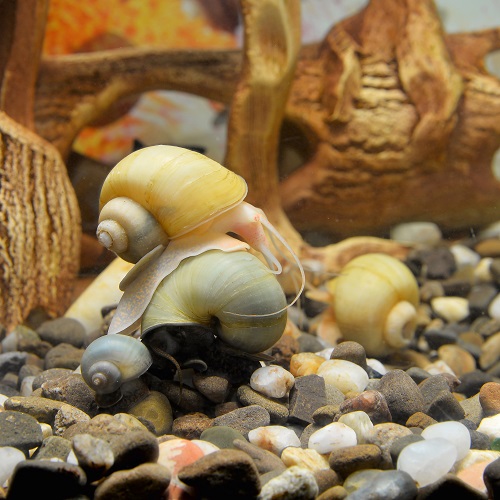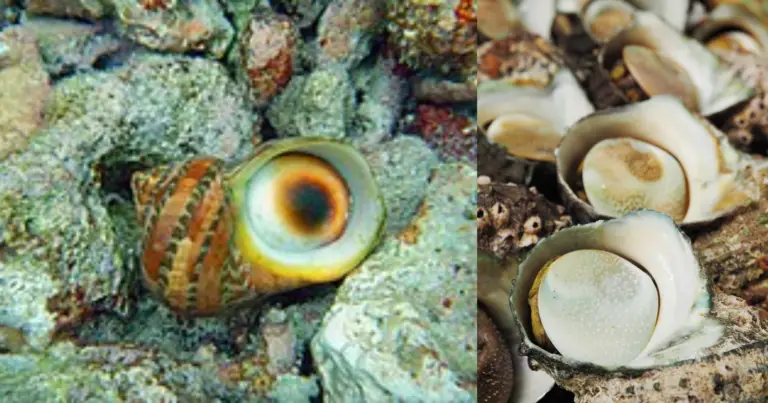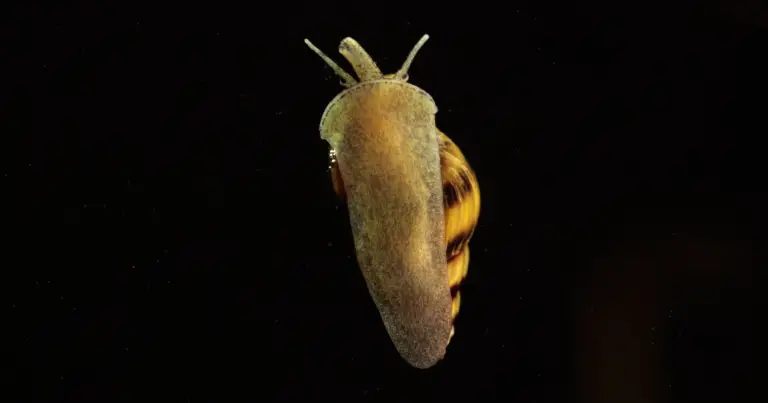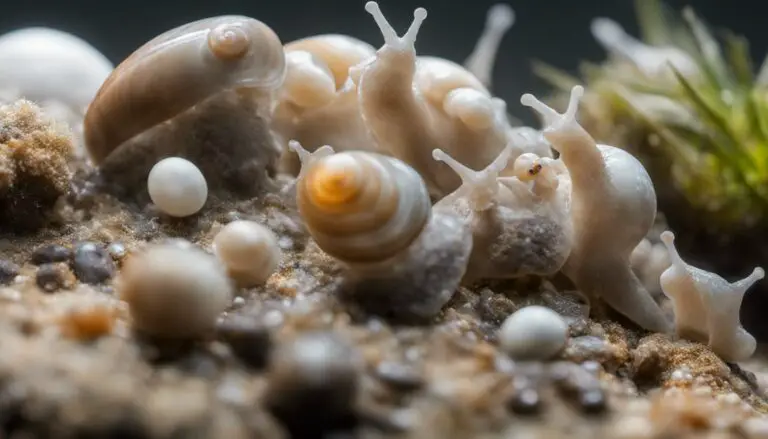Are Snails Smart?
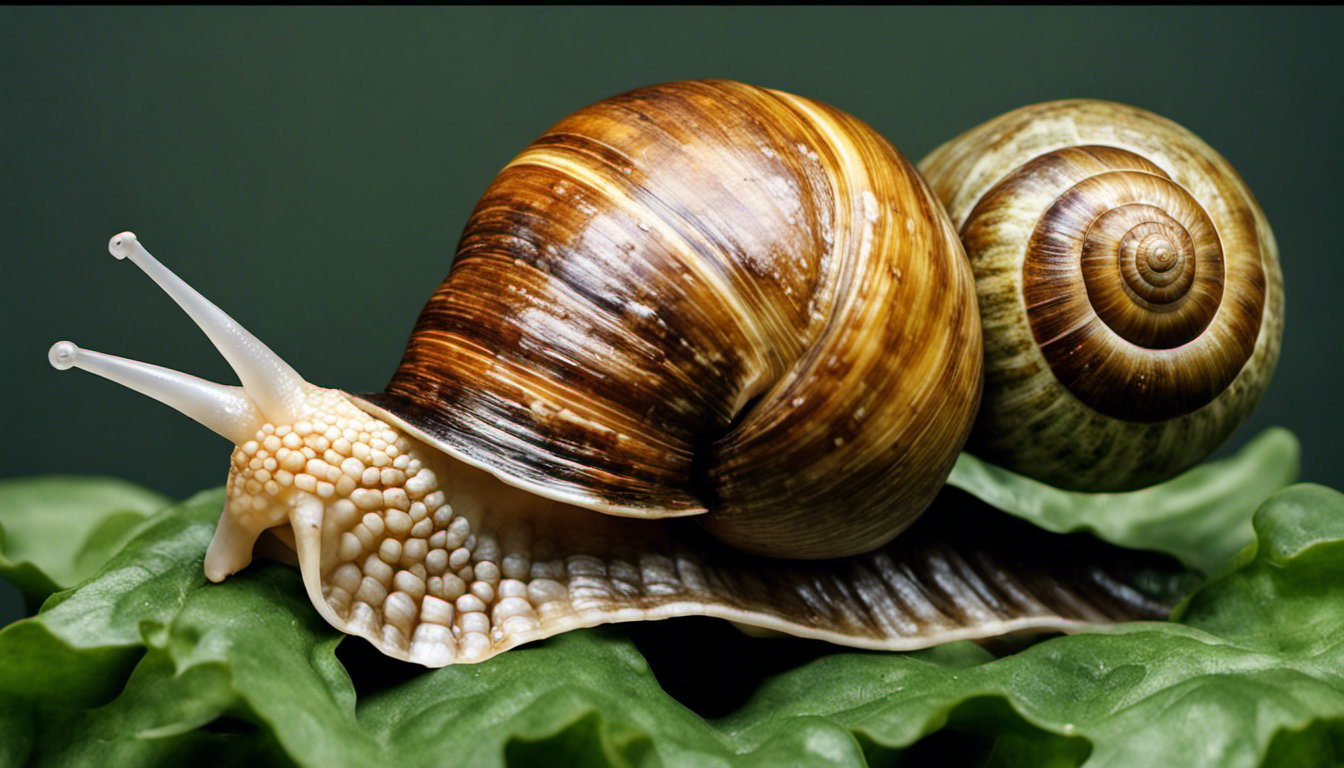
Are snails smart? Snails may not be the first creatures that come to mind when discussing intelligence, but these tiny gastropods have some surprising abilities. Their unique characteristics and habits have sparked curiosity, making us wonder just how smart they are.

For an invertebrate, snails possess remarkable intelligence. They are quite adept at searching for food and evading predators. Additionally, they demonstrate learning capabilities through classical conditioning. Their cognitive prowess may be surprising, but it is what helps them survive in their natural environment.
As you explore the fascinating world of snails, remember that intelligence is a complex and subjective concept. While they may not perform complex tasks like primates, their abilities should not be underestimated. So, the next time you encounter a snail in your garden, take a moment to appreciate their unique intelligence.
Contents
Table of Contents
Understanding Snails
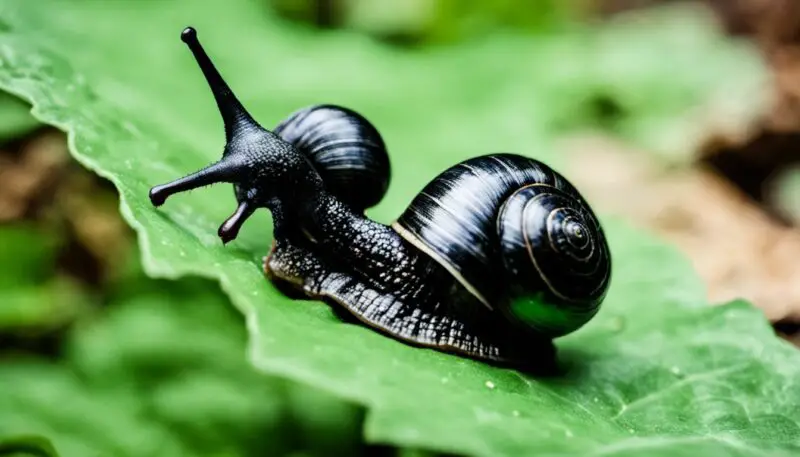
Specifying the Species
Numerous species of snails fall under the larger category of gastropods. As you learn more about snails, it’s essential to note that not all gastropods have shells, but all snails do possess one.
Snails as Mammals
It’s important to clarify that snails are not mammals. Instead, they belong to the phylum Mollusca, which includes other creatures like clams and octopuses. Snails are invertebrates, meaning they lack a backbone, making them fundamentally different from mammals.
Snails’ Habitat
Snails can be found in various environments, from the bottom of freshwater bodies to forest floors and even your backyard. They are adaptable creatures capable of surviving in different conditions, provided there’s adequate humidity, and their diet consists primarily of plant materials.
Snail Anatomy
The snail’s anatomy is truly fascinating. A snail has a unique body system that includes the muscular foot, head, visceral mass, and protective shell. Their sensory organs, such as eyes and tentacles, are located on their head, while their internal organs are inside the visceral mass. The snail’s shell is primarily used to protect against predators and serves as a home when it withdraws into it.
Snail’s Locomotion
Regarding locomotion, snails have a distinct way of moving using their muscular foot. The foot undulates in a wave-like motion, secreting mucus to reduce friction between its body and the surfaces it traverses. This slow travel speed is synonymous with their very nature and allows them to navigate various environments while foraging for food and avoiding predators.
Cognitive Abilities of Snails
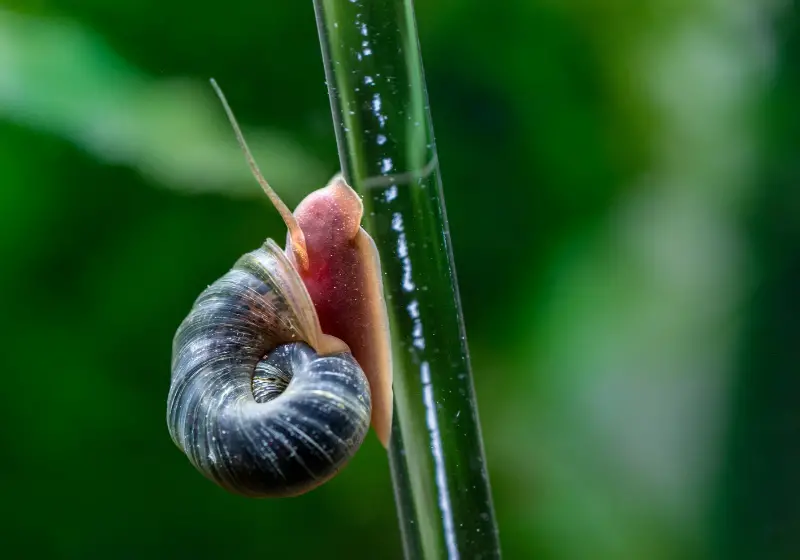
Learning and Memory in Snails
Recent studies have shown that snails possess cognitive abilities that were once overlooked. In fact, these slow-moving creatures can learn and retain memories. Researchers have discovered that the great pond snail, Lymnaea stagnalis, commonly used as a model species in learning and memory studies, demonstrates memory retention and learning capabilities.
Problem Solving Ability
Regarding problem-solving, snails may not come across as the most intelligent creatures. However, they do have specific strategies to thrive in their natural habitats. For instance, wild snails exhibit better cognitive abilities than their captive counterparts as they are more exposed to diverse environments.
This exposure helps them adapt and develop skills, such as efficient food searching and remembering threats, thus exhibiting problem-solving abilities on a basic level.
Snail’s Emotions
The emotional aspect of snails may seem unusual, but even these creatures experience stress, with different factors affecting their emotional state. Interestingly, one study has found that social isolation, or loneliness, creates stress in snails, impacting their memory formation. This discovery indicates that snails possess emotions to an extent that researchers are still exploring.
As you read this, remember that the cognitive abilities of snails may not be as advanced as other animals. Yet, they do possess skills in learning, memory, problem-solving, and emotional responses. Understanding the cognitive capabilities of these simple creatures provides a fascinating insight into their world and may help broaden our perspective on animal intelligence.
True Facts About The Land Snail: Watch this
Scientific Studies on Snail Intelligence
Study on Pond Snails
In a study on pond snails (Lymnaea stagnalis), researchers investigated learning and memory formation in these creatures. Pond snails are commonly used as model organisms in many scientific studies, offering valuable insights into fundamental memory processes. The researchers found that individual snails display varying abilities to form memories.
Your understanding of snail intelligence can be further enriched by exploring the results from the study conducted by neuroscientists at the Universities of Exeter and Edinburgh, which analyzed the factors that impact memory interference. They discovered that the key to retaining more information in snails is variety, just like “a change is as good as a rest” for humans.
Invasive Species Study
Another enlightening study focuses on the intelligence of invasive snail species. Researchers used pond snails to investigate their ability to perform specific tasks and reported that they excelled at some challenges but not others. Much like humans, not every individual snail has the same level of competence across different tasks.
Throughout these studies, you can gain a clearer and more comprehensive understanding of snail intelligence, particularly in the context of memory formation and the specific tasks they perform. Keep in mind that the abilities of snails may vary among individual organisms. Several fascinating studies have shown that snails can be valuable model organisms for understanding human and animal memory processes.
Survival and Adaptation Tactics of Snails

Food and Nutrition
Your journey to understanding snails begins with their food and nutrition. Snails are generally omnivores, feeding on both plant and animal matter. Their diet can include leaves, stems, fruits, fungi, algae, and even dead or decaying plant and animal material.
Snails use their specialized mouthparts called radula, which consist of tiny, tooth-like structures, to scrape food into smaller pieces for easier consumption. In their natural environment, snails play an essential role in nutrient recycling and maintaining a balanced ecosystem.
Predator Avoidance
In the wild, snails have various tactics to avoid predators. One effective way is through camouflage. They blend in with their surroundings, making it more difficult for predators to spot them. Additionally, snails produce a sticky slime that helps them adhere to surfaces, allowing them to escape from potential threats. Some species, like Ezohelix gainesi, utilize their shell as a defensive mechanism, swinging it at attacking beetles.
Aside from physical defenses, snails possess a level of intelligence that aids in predator avoidance. They can learn and adapt their behavior, helping them survive in ever-changing environments.
Reproduction in Snails
Reproduction plays a crucial role in the survival and adaptation of snails. Most land snails are hermaphrodites, possessing both male and female reproductive organs. This unique characteristic enables them to mate with any snail of the species they encounter, increasing their chances of successful reproduction.
During mating, snails exchange sperm through a process called sperm transfer. The sperm is then stored in a special organ called the spermatheca until the eggs are ready to be fertilized. After fertilization, the snails lay eggs either in the soil or other protected areas, providing the offspring with a safe environment for growth and development.
Survival and adaptation go hand in hand for snails. Their ability to obtain food and nutrients allows them to thrive in various environments, while their predator avoidance skills and reproductive strategies ensure the continuation of their species. Understanding these fascinating creatures gives you insight into snails’ complex and beautiful natural world.
Interactions Between Snails and Humans
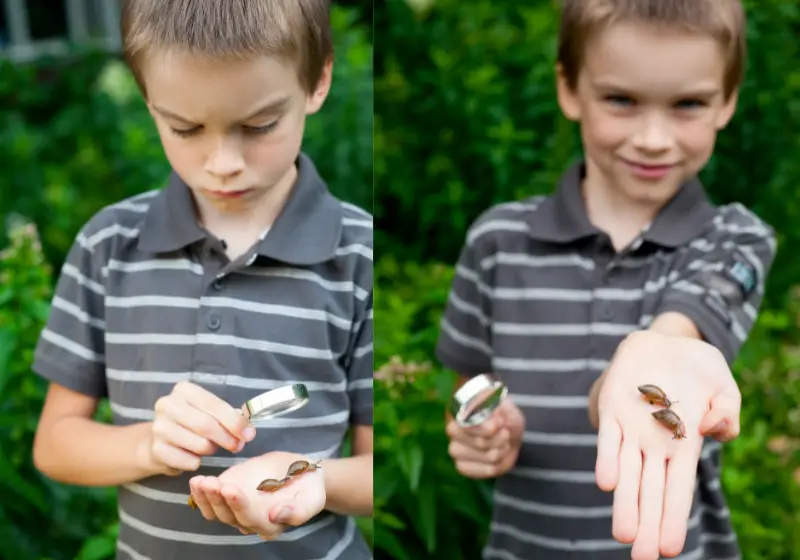
Snails as Pets
Snails, particularly the Giant African Land Snail and the Apple Snail, have become popular choices as pets due to their low maintenance and unique appearance. They are quiet easy to care for, and their slow movements can be calming.
As a pet owner, you should ensure that your snail’s habitat is clean moist, and provides enough hiding spaces for its comfort. Feeding them various vegetables, fruits, and calcium supplements will ensure your snail stays healthy.
Snails as Food
In some cultures, snails are considered delicacies and consumed for nutritional benefits. Before you decide to incorporate snails into your diet, it’s vital to determine if they are safe to eat. Not all snails are suitable for human consumption, and some even carry parasites that can transmit diseases to humans. Edible snails should be thoroughly cleaned and cooked to avoid any potential health risks.
When consuming snails, be aware that they are rich in protein and low in calories, making them a nutritious and healthy addition to your meals. However, sourcing your snails ethically and sustainably is crucial to reduce the potential impact on the environment and local ecosystems.
Frequently Asked Questions: Are Snails Smart
Do snails possess intelligence?
Yes, snails do possess a level of intelligence. It is important to understand that intelligence varies among species and even individuals, and snails are no exception. Great pond snails, for example, exhibit cognitive abilities that vary within their species. These cognitive abilities impact memory formation and their ability to adapt to environmental stress.
What is a snail’s IQ?
IQ is a measure of human intelligence, so it does not apply to snails or other non-human species. Snails do have their ways of interacting with the environment and solving problems. Still, it’s essential to understand that their cognitive abilities cannot be easily compared to humans or other animals.
Do snails have personalities?
Like many other animals, Snails exhibit individual variations in behavior, which can be seen as aspects of their “personality.” Some snails may be more active or bolder in exploring their environment, while others may be more timid or cautious. This variation in behavior may result from genetic and environmental factors influencing each snail’s development.
Can snails recognize humans?
There is no concrete evidence to suggest that snails can recognize individual humans. Snails do have sensory abilities that allow them to detect changes in their environment, including vibrations and chemical cues, but their capacity for recognizing specific individuals is unclear.
Do snails have brains?
Yes, snails do possess a simple neurological structure that serves as their “brain.” This structure allows them to process sensory information and coordinate their movements and behaviors. Snail brains are relatively simple compared to more complex organisms, enabling snails to perform their essential life functions.
Are snails capable of feeling pain or emotions?
Whether snails can feel pain or emotions is still a matter of scientific debate. Snails have a simple nervous system, which may not be complex enough to experience pain and emotions like humans and other more advanced animals do. However, they can respond to stimuli in their environment and exhibit behaviors that indicate preference or aversion to specific situations.


